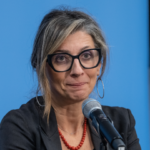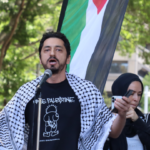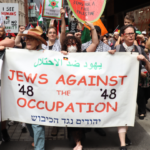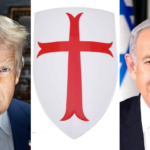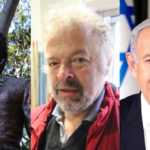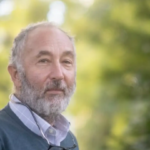Melbourne Uni Law Professor Criticised Over Kanaky-New Caledonia Colonial Propaganda
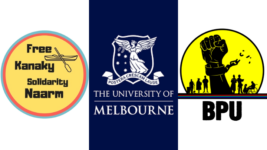
The Kanaky solidarity movement across this continent has only grown since the 13 May 2024 rioting in Kanaky, or so-called French-administered New Caledonia, so it’s no surprise that after University of Melbourne Law Professor Eric Descheemaeker recently made remarks during a radio interview that strayed from “academic discourse” and into “colonial propaganda”, he’s been called out on it.
“The French flag is the condition for the survival of the Kanak world: the condition for the survival of their culture of which they are so proud.” Descheemaeker, a French law professor, said during an interview on the program Transparence on New Caledonia’s Radio Rythme Bleu on 25 April 2025. “It is we who have allowed them to continue to exist.”
The comments of the French-born professor living in Australia were made at a particularly contentious time for Kanaky-New Caledonia, which the French first took control of in 1853, despite the presence of the Kanak people, with a penal colony being established in the nickel-rich region in the 1860s, which gradually developed into the contentious French settler colonial overseas territory.
The 13 May 2024 riots broke out in Noumea, the capital of Kanaky-New Caledonia, following a protest led by the Kanak liberation movement, which has been agitating for a restoration of sovereignty for the First Peoples of the South Pacific archipelago since the 1980s, as the French government was attempting to pass a law that would further erode the political power of the Kanaks.
And while the rioting that led to 14 deaths and a state of emergency has subsided, the issue of the non-self-governing territory is far from resolved, and a coalition of local social justice groups and advocates are calling for the University of Melbourne to clarify whether the comments of Professor Descheemaeker are compatible with its stance on “international law and Indigenous rights”.
In contravention of international law
“We, the French camp, we are fighting for everyone. When I defend, and when we defend a French New Caledonia, I am defending all of France, New Caledonia, and all the communities of New Caledonia – including, of course, the Kanaks,” Descheemaeker told Transparence host Elizabeth Nouar on 25 April 2025, during an interview that was conducted in French.
“The Kanaks, being the weakest, in any case economically, are those who have the most to lose from independence,” the University of Melbourne law professor added.
“That’s one thing, but I will keep repeating it until I die: if the French flag is lowered from the central police station, just a few dozen metres from the studio where we are speaking, it will be the end of the world for the Kanaks.”
The local Kanak solidarity coalition points out that Descheemaeker’s comments contravene global law in a number of ways, including UN General Assembly resolution 1514 (XV) as it provides the right to self-determination to all peoples and states that “inadequacy of political, economic, social or educational preparedness should never serve as a pretext for delaying independence”.
Article 1 of the International Conventant on Civil and Political Rights (ICCPR) too recognises that “all peoples have the right of self-determination”, along with the right to “freely pursue their economic, social and cultural development”, while the UN Declaration on the Rights of Indigenous Peoples (UNDRIP) protects Indigenous autonomy, self-determination and freedom from forced assimilation.
Descheemaeker’s statements are “textbook colonial justification for occupation”, the local solidarity coalition continues, adding that it “echoes the paternalistic logic of empire, where Indigenous peoples are infantilised, deemed incapable of governing themselves and told that their cultures exist only by permission of the coloniser.”
“This logic is not only false – it is a racist and ahistorical narrative that underpins genocide, land theft and the ongoing erasure of Indigenous sovereignty worldwide.”
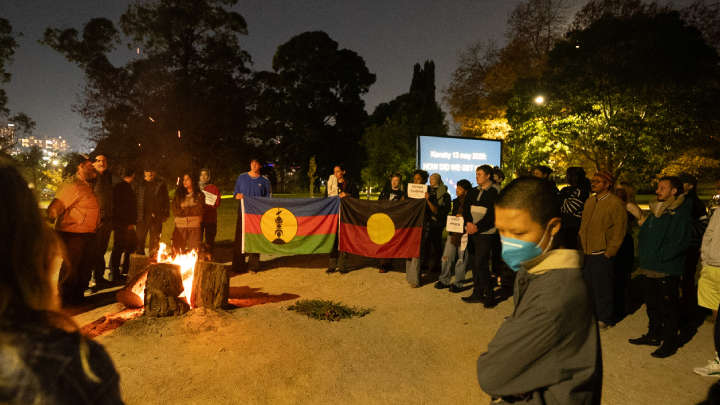
A brief history of settler colonialism in Kanaky
Kanaky-New Caledonia remains on the UN list of non-self-governing territories. There are 17 territories on the list whose people are considered to “have not yet attained a full measure of self-government”, as they’re currently being administered by UN member states, which basically infers that all these territories are expected to eventually go through a process of decolonisation.
Kanaky became recognised as a French overseas territory in 1946. France has 12 overseas territories with various statuses. The developments in Kanaky-New Caledonia coincide with a lessening of French international influence, which has significantly involved the 2024 formation of the Alliance of Sahel States by Niger, Mali and Burkina Faso, nations that have now thrown out the French military.
The Kanaky liberation movement picked up significantly after Vanuatu expelled France in the 1980s. This led to the formation of Kanak independence groups, like the Kanak and Socialist National Liberation Front, and there was something of a low-level civil war that took place within the archipelago territory that consists of over 140 islands, over 1984 through to 1988.
The establishment of the 1998 Noumea Accord was supposed to guarantee increased power to the Kanaks. The agreement provided for three independence votes. The 2018 poll garnered a 43.3 percent vote for independence. The 2020 vote returned 46.7 percent for independence.
But the third referendum that was supposed to take place in 2022 was held early at the behest of the settlers in late 2021, which was when COVID was peaking.
The French were concerned that the third vote would be successful in terms of independence, so in bringing it forward to be held during the pandemic which was disproportionately affecting the Kanaks, many were unable to cast a vote, so most decided not to. Yet, the French continue to claim that the third referendum was conducted legitimately despite these extenuating circumstances.
The May 2024 rioting that saw France deploy 1,000 additional police and 3,000 French soldiers to the territory broke out because the Macron government was progressing a new law through French parliament that would have reversed a ban on voting rights for French people who’d migrated to Kanaky over recent decades, as such rights have been restricted to pre-1998 migrated French people.
Right now, Kanaky-New Caledonia has a population of around 270,000 people, with 41 percent made up of Kanaks, 24 percent being French people and 35 percent of the population made up of people from various other Pacific Island nations.
French minister for overseas territories Manuel Valls has recently been spruiking a new policy known as “sovereignty with France”, which would involve transference of sovereignty from France to New Caledonia that would then have an international status. There would be dual French and New Caledonian nationalities, and all this would be enshrined in the French Constitution.
Whilst this solution is being flagged ahead of provisional elections that must be held by 30 November this year, this proposal, which maintains formal links with France, is far from what the Kanaky liberation movement is aiming to achieve.
Whilst the New Caledonian loyalists, which includes law professor Descheemaeker, are calling for a form of federalism that would strengthen the powers of the region’s three provinces and lessen that of the central New Caledonian government, which would further entail bolstering the distribution of power and finances to the southern province, which is a stronghold of antiindependence sentiment.
Clarifying its position
The Kanaky solidarity coalition further calls out the recent statement made by the University of Melbourne law professor, specifically those “suggesting that Kanaks cannot survive without French domination” as they invoke “colonial racial hierarchies”, and they add that if the statements were made in Australia, they would likely be in breach of the Racial Discrimination Act 1975 (Cth).
“As a professor at the University of Melbourne Law School, Descheemaeker speaks from a position of institutional power. His comments carry the authority of the law school and of legal academia,” the coalition’s statement continues. “The law school and the broader university have a legal and ethical obligation to respond”, due to their policies that protect against such prejudicial transgressions.
The Kanak solidarity coalition of groups and individuals includes Free Kanaky Solidarity Naarm, the Black People’s Union, Crime Scene Australia, Radio Rata, as well as being signed by Independent Senator Lidia Thorpe, Uncle Robbie Thorpe, Uncle Wayne “Coco” Wharton and Keiran Stewart-Assheton.
“Descheemaeker’s statement is not an isolated academic opinion,” the Kanaky solidarity collation continued. “It reflects a broader colonial ideology that remains embedded in settler institutions across so-called Australia. That someone who actively promotes the continued occupation of Kanaky also resides and works on stolen Wurundjeri land, is no coincidence.”
The Kanaky solidarity coalition further adds its demands, which entail the University of Melbourne Law School clarifying where it stands in terms of Descheemaeker’s statements, preventing the professor from teaching courses that relate to international law, human rights and colonisation and it requests a formal apology issued to the Kanak people and the First Nations people of this continent.
The final demand is that an “Indigenous-led review panel” is established “to ensure law schools and universities do not platform or legitimise colonial ideology under the guise of ‘academic freedom’”.
“There is no neutrality when it comes to colonisation,” those issuing the statement in solidarity with the Kanaks made certain in concluding.
“There is no legitimacy in defending the ongoing theft of Indigenous land and sovereignty.”


